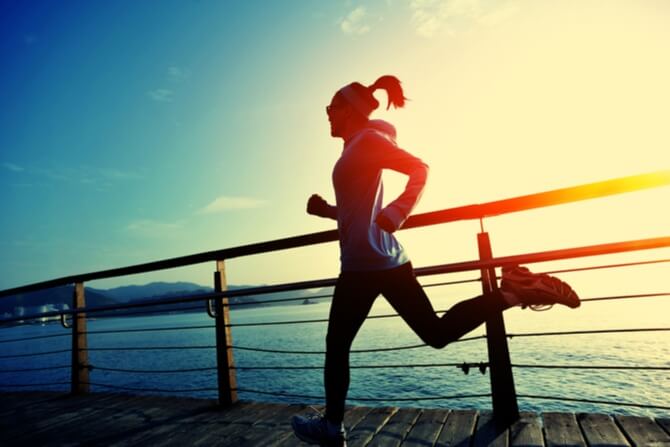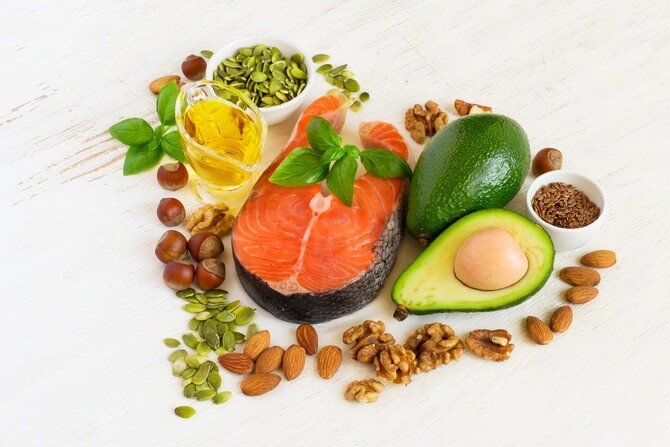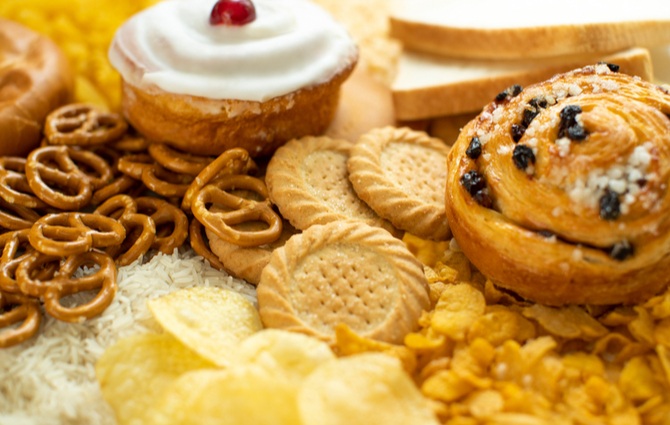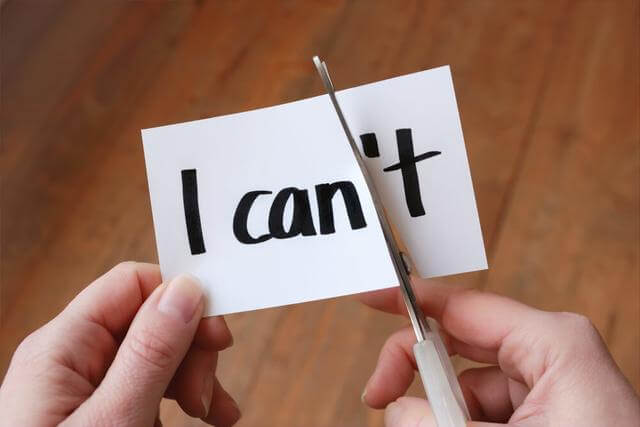How To Lose Weight Without Fasting?
Written by Andrew Brewer. ⚕️Reviewed and fact checked by Dr. Harshi Dhingra & Melissa Mitri, Ms, Rd.
“I am eating right, but I can not lose any weight, why?”, “I tried intermittent fasting, but I prefer more traditional methods, just how do I lose some weight?”.
Well, there is a lot more involved in losing weight than cutting calories, dumping carbs and running in place for an hour.
Losing weight also often involves critical emotional and psychological effects that can impact your results – and determine if it’s going to be a failure or success.
To complicate matters even more, the amount of stress in your daily life, the hours you sleep and the amount of water you drink all influence the level of success you will achieve in any diet. In order to lose weight in the long-term, all of these factors need to be addressed.
If not, you may be putting yourself at risk for a heart attack for the sake of losing weight.
For example, do you want to go on another “diet” or do you want to lead a healthy lifestyle? What is the one word that comes to mind when you think “diet”? How about “starving”? How many diets have you followed only to feel like an outcast at the buffet line who can only eat a teaspoon of this and an ounce of that … and don’t you even dare look at that piece of candy!
If you want to change your appearance, get healthy and live longer in a healthier body, you’ve come to the right place. This guide will answer your question: “how to lose weight” and your results will only depend on you.
We will make sure that you are not hungry while you are losing weight, and that you can have that piece of candy or slice of pie without feeling guilty.
The key to the success of weight loss is being realistic about the amount of weight you really want to lose – permanently – and being consistent in your effort of losing weight steadily and safely. It’s a fight to the finish and this is a training guide to ensure that you become the champion.
Key Takeaways
- Losing weight involves more than just cutting calories and exercising. Emotional and psychological factors, stress levels, sleep quality, and water intake also play a crucial role.
- Getting enough restful sleep is important for weight loss. Sleep deficiency can affect the body’s ability to process sugars and fats, leading to weight gain. Creating a consistent sleep schedule and avoiding screens before bedtime can help improve sleep quality.
- A balanced diet is essential for weight loss. Avoiding processed foods and incorporating more whole foods, protein, fiber, and healthy fats can help reduce hunger and promote weight loss.
- Losing weight should not be about starvation or extreme diets, but rather creating a healthy lifestyle that is sustainable in the long term.
- It’s important to be realistic about weight loss goals and consistent in efforts to lose weight steadily and safely.
Step 1: Sleep More – Sleep Better – Lose Weight Faster
How often have you heard the expression, “If you snooze, you lose”? If you work for a living, you’ve probably heard it once or twice at least but whoever said it, didn’t know how true that was.
According to the National Institute of Health, 1 in 3 of Americans suffer from sleep deficiency or chronic sleep deprivation.
This is not even taking into consideration those with chronic insomnia.
Sleep deprivation is simply when you fail to get “enough” sleep to replenish your cells, hormones and there is not enough melatonin.
Sleep deficiency is when:
- You sleep when your body isn’t prepared to sleep – those working night shifts, split shifts are examples of sleeping against your circadian clock.
- You don’t sleep restfully – which indicates that you are not going through the REM/NREM deep sleep cycles that your body needs to recharge.
- You have interrupted sleep – a child that needs attention and wakes you (a new baby or a sick loved one) or getting up to use the bathroom in the middle of the night.
Over 21 studies from various professional fields have found that a restful night’s sleep every night actually increases the success rate for losing weight.
In addition, the University of Chicago’s research teams have discovered that just 4 nights of sleep deficiency decreases your body’s ability to use insulin to process sugars, starches and proteins into energy.
When this happens, your body cannot process fats in the bloodstream and instead stores them for later use – usually around your hips or tummy!
Of course, that comes with a few “ifs” and “buts”. IF it is quality (restful) sleep and IF you go to bed and get up at the same time every day. BUT you do not sleep less than 7.5 hours or more than 8.5 hours a night.
Sleeping more than 8.5 hours and not feeling rested may be just as bad for weight loss success as too little sleep. This may indicate that you have an underlying illness or condition, such as sleep apnea, and you should see a sleep specialist in your area to find out if it can be detected.
Here are the most important tips for getting enough restful sleep each night.
- Turn off the lights
Including night lights, computer screens, artificial candles.
Darkness is the most important element that tells your brain to initiates the production of melatonin that keeps your brain in high gear all day.
- Create a comfortable schedule for your lifestyle
Set a consistent time to go to bed every night and time to wake up every day – this includes the majority of weekends.
Sleep scientists have found that of the two, waking at the exact same time every day is the most important! If you have trouble responding to alarm clocks, consider getting a FitBit or a similar product that is designed to track your sleep and uses vibration to wake you gently.
- Watch what you eat 2 hours prior to bedtime
This doesn’t mean to avoid eating within 2 hours of bedtime – it means to choose what you eat more wisely. Eat lighter foods that are lower in fat – vegetables, fruit with yogurt, cereal and milk or an egg sandwich.
Step 2: Balance Your Diet
You are what you eat! If you are eating foods that shove carbs into your blood and build plaque in your veins, it’s time to rethink what you eat. What kind of person do you want to be, and how do you want to live?
Everyone is on some kind of “diet” because everyone is eating something. While that seems like a simple statement, it is important so you can begin erasing the concept of diet=starvation.
If you are constantly feeling hungry, then it makes it impossible to stay with a plan. “Diet” actually refers only to what you choose to eat during your waking hours, and finding balance can help you lose weight.
Add Proteins
Eating more protein is essential for weight loss and to keep your belly feeling full. It’s also equally important to add more vegetables, eat enough healthy fat, and decrease the carbs to the lowest level recommended by medical experts.
Vegetables have micronutrients that allow your body to break down the protein and distribute it throughout the body.
They all work hand-in-hand.
Adding more protein-rich foods will prevent you from the hunger pangs that can tempt you to nibble on sweets that rob your body of nutritional intake and your brain from an essential source of energy.
According to the American Institute of Medicine, you should get a minimum of 10% and absolutely no more than 35% of your caloric intake from Protein sources or your metabolism will go whacky!
Try to stay as close to the top level as possible for the best weight loss results.
WebMD recommends the following amounts of protein for a healthy diet, depending on your age, health status, and activity level:
- Babies need about 10 grams a day.
- School-age kids need 19-34 grams a day.
- Teenage boys need up to 52 grams a day.
- Teenage girls need 46 grams a day.
- Adult men need about 56 grams a day.
- Adult women need about 46 grams a day (71 grams, if pregnant or breastfeeding).
High Protein Foods:
- Fish and shell fish;
- Dried Beans – Red beans or kidney beans, Fava beans, Lima beans, black beans, lentils, and blackeye peas;
- Cooked legumes: Chickpeas, French green beans, Baked beans, Hummus, Falafel, tofu;
- Eggs;
- Almonds, Pistachios, Peanuts, Pumpkin seeds, mixed nuts of any type;
- Oats;
- Chicken;
- Beef;
- Pork including Bacon;
- Broccoli.
Add Vegetables
Choose low carb vegetables as often as possible to increase dietary fiber and provide a sense of fullness, while keeping calories low. Vegetables also contain essential micronutrients such as magnesium (which the majority of Americans are chronically low in) and vitamins A, C, B6, folic acid and antioxidants.
Low Carb Vegetables include:
- Spinach;
- Tomato;
- Broccoli;
- Cucumber;
- Cabbage and Brussel sprouts;
- Cauliflower;
- Asparagus;
- Mustard and Collard Greens;
- Kale;
- Herbs: parsley, basil, thyme, rosemary, cilantro and sage;
- Fennel;
- Zucchini;
- Peppers (Sweet or spicy);
- Rutabaga;
- Carrots;
- Sweet Potatoes;
- Celery root.
Add Fats
Fats give your body energy and support cell growth – like new skin cells that prevent wrinkles and dry, alligator skin. Fats also digest and absorb important nutrients (such as Vitamins A, D, E and K) and micronutrients (such as magnesium ) as well as assist in hormone production, such as in testosterone.
Good Fats are found in:
- Extra Virgin Olive Oil;
- Avocado Oil;
- Fish Oils;
- Sesame oil;
- Nuts and edible seeds.
Use Bad Fats in moderation, such as
- Lunchmeat and processed meats (such as meats in cans – including meat ravioli in a can! These products use trans fats, the type of fat that is bad for your heart, and are also very high in salt content);
- Palm Oil including Palm kernel oil;
- Dairy foods such as whole milk, cheese, ice cream (If you cannot stand the taste of 2% milk or skim milk, low-fat cheese or low-fat ice cream, cut your milk intake to ½ cup per day, your real cheese to once a week and use ice cream as your monthly treat instead of nightly snack).
The latest studies show that saturated fats may not have as much of a causal connection to cardiovascular disease, heart disease or stroke as researchers originally thought. While the verdict is still out ,trans-fats are still thought to be the most dangerous to your heart health.
Reduce Carbs
The next thing that we need to address is carbohydrates. Carbs are essential to thinking clearly and making rational decisions.
According to the Mayo Clinic, the recommended amount of Carbohydrates necessary for brain, muscle, tissue and cell function is between 45% and 65% of total calories that you take in during the day.
So, for a 2000 calorie diet, your brain requires at least 900 calories of carbs per day. Reducing carb intake below that level is dangerous to your health.
If you are consuming less than 45% or more than 65% of “good” carbs per day, you increase your risk for coronary heart disease, stroke and Type 2 diabetes. (There are some plans that cite the recommended daily amount of carbs at 25 – 50 grams per day. This is far too few even if you are on a 1000 calorie daily intake).
There is one more element that needs to be included: Fiber. The recommended daily amount of fiber is 14 grams per 1000 calories. Most Americans do not meet this recommendation.
Some plans misunderstand the need for grains in the diet and some even claim that they are unnecessary. However, this is simply not true. For example, grains are packed with iron, fiber, and essential vitamins. Your blood needs iron to generate healthy red blood cells.
You don’t need a ton of carbs, but you do need some. Just with taking in 3-ounces of grains per day, you are already lowering your risk for chronic organ disorders and heart issues. 1-2 carbs per meal such as unsweetened cereal, whole wheat bread, or a starchy potato is all you need.
However, – if you want to learn how to lose weight fast, it helps to prioritize your carb intake earlier in the day, and reduce it in the evening hours.
Don’t Forget the Fruits!
Fruits have been given a bad rap for the last few years, but the truth is that they are high in fiber, necessary for digestion and provide vital nutrients – such as potassium and magnesium – to keep you healthy while you lose weight.
Magnesium is crucial to more than 300 different biochemical reactions that assists other foods in releasing their vitamins and minerals for energy.
Lack of magnesium is responsible for charley horses (cramps in limbs), high blood pressure, migraines and osteoporosis – to name just a few.
Just avoid eating fruits at least 2 hours before bedtime, as they still have plenty of sugar!
Balancing the Eating Plan
To prevent feeling hungry, eat 3 meals a day plus three snacks a day! For a complete meal, include one protein source, one fat source and one low carb vegetable source.
For your morning snack, choose a whole fruit for the extra dietary fiber you’re probably lacking if you live in the U.S., or a high protein snack such as Maple Coffee Bacon or beef jerky.
Bake maple flavored bacon dusted with 1 teaspoon of instant coffee in the oven at 400 degrees until well done or broil with the rack in the middle of the oven until done. It will cook all the way through without turning and can be made ahead and kept in a canning jar in the fridge until ready to use.
Here are a few more healthy snack ideas for weight loss:
- For your afternoon snack, choose one that is high in magnesium – bananas, nuts of any kind, dried figs and once a month – any 2-ounce piece of chocolate candy.
- Salted peanuts dusted with chipotle pepper seasoning and baked for 10 minutes at 350 are really good. Hot peppers of any kind will increase the calorie burn.
- For a snack at bedtime, make it something that is easily digestible and comfort food such as a hot bowl of pumpkin and leek soup or a piece of rye toast with about 1-ounce of cream cheese or goat cheese and grilled apricots on top.
- You need to eat a high protein breakfast. A high protein breakfast gives you the kick start that lasts for hours and prevents you from wanting to nibble in an hour.
Here’s one example:
It’s a roll – any roll of your choice but a rye, oat or 7-grain, will meet your grain requirement for the day – with 2 thin slices of bacon (partially cook it ahead of time) and one raw egg with any vegetable cut into small bites.
***You can make enough for a whole week, wrap them in tin foil and put them in the fridge until you’re ready to cook them. Then, pop them in the OVEN (not microwaveable!) for 10 – 12 minutes and they’re ready.
Staying hydrated is also important for weight loss. Most diets and nutritionists suggest drinking a minimum of 8 glasses of water a day, which equals 64 ounces of liquid per day, depending on your age, health, and physical activity level. This can come from any non-sweetened, non-caffeinated beverages.
Fruits and vegetables are also high in water content, which counts towards your daily hydration goals.
Step 3: Start Exercising and Lose Weight Even Faster
We know it is difficult to start exercising, that is why we recommend you read this how to start exercising guide. There are two essential types of exercise for weight loss – and you really need to increase your activity in both.
The first is low-impact and aerobic exercises such as swimming and walking daily. The second is strength building exercise.
The first – aerobic – burns more calories during the workout, but fails to have any long-term influence on metabolism. The second – strength – burns fewer calories during the workout, but amps up your metabolism by increasing your muscle mass.
This increase in metabolism is helpful to counteract a slowed metabolism that often occurs as you lose weight.
For aerobic exercise, walk about 1-mile a day at a brisk pace, breathing in and pushing out as much air as you can while you walk. Deep breathing increases your stamina and lung capacity when done during passive exercise.
Swimming is another form of aerobic or low impact exercise that puts little stress on the body. If swimming is your choice, swim back and forth in the pool with your goal of at least 15-minutes straight without a break.
If you have poor muscle tone in your abdomen, which is common for those losing weight, stretches, yoga and muscle toning exercises will help tone the muscles and prevent the skin from sagging as you lose weight.
Strength building exercises include weight lifting, treadmill running, jogging outside, jumping rope each followed by stretches. If you’re new to strength training, aim for 5-minutes for several strength building exercises each day to start.
Be sure to do slow warm-up stretches before engaging in muscle building exercises, otherwise you’re at risk of tearing your muscles. Some people suggest that you will burn more calories at a particular time of day, but there is no evidence that supports one time of day over another. Make a schedule and include the strength building exercises at least 3 times a week. The best time of day is one that you will be consistent with.
Drink water before and after you exercise. Your muscles, cells and organs become depleted of water when you exercise, and in order to get rid of the excess and unnecessary carbs, sugars, starches and fats, your body needs water to do so.
Step 4: Reduce Sugars, Starches and Alcohol
Sugary baked goods,, processed starches and alcohol are mostly comprised of sugar, and provide little in terms of nutritional value. However, this does not necessarily mean that you should cut out all carbs or even all sugars. It does mean that if you significantly cut those that lack nutrients, you will be taking in fewer calories and will have more opportunity to get the nutrients your body demands to work correctly.
Too much sugar stimulates insulin secretion more than any other type of food or beverage that you consume. The two most serious offenders of high sugar content that lack vitamins and minerals are diet sodas and alcohol.
In a a study where over 3000 women were included, researchers discovered to their horror that high sugar substitute use is near 4 times more likely to be at the root of kidney disorders and that Diet Cola specifically, is directly connected to kidney diseases.
To add insult to injury, diet sodas do not help you lose weight and drinking diet soda daily may increase waistline measurements near 4 times higher than non-diet soda drinkers!
Alcohol will put you to sleep because it acts as a sedative. However, it is full of sugars that your body cannot break down during sleep, which prevents you from entering NREM cycles that your body uses to slow down body functions and truly rest.
If you are at a wedding or celebration where alcohol is served, drink one or two at most and you’ll be fine. Drink water in between alcoholic drinks to slow your pace and stay hydrated.
If you love the taste of diet sodas, limit them to one a month rather than one a day.
Step 5: Stay Motivated & Positive – Weight Loss can be EASY
This is where being realistic is really important. If you have ever followed a weight loss diet, you know that you’ll lose a lot early on and then, you’ll level off at some point and may not lose any weight for several weeks in a row.
Even on the Greatest Loser, the contestants level off and it is not uncommon for them to gain a few pounds before they start losing again.
There is nothing – absolutely nothing – that you can do about it, either. This is just how the weight loss process works – it can ebb and flow, and this is completely normal. Because losing weight slowly and steadily is a long term commitment, find an outfit at the very start that you are wearing now. The outfit should be a pair of slacks and a top. Hang it in a closet where you won’t use it for the next 3 – 6 – 9 – 12 months. Every 3 months, take the outfit out of hiding and put it on. You’ll be amazed at how much weight and size you’ve lost!
Conclusion
The trick to losing weight is to be consistent. Consistently eat 3 regular meals and 3 snacks engage, in passive exercises and strength exercises 2-3 times a week, and aim for 7.5 to 8.5 hours of sleep every night while making sure that you get up at the same time every single day. You will be amazed how quickly your body will be losing weight. Just stay consistent, and you’ll see weight loss results in no time.
FAQ
-
Is it possible to lose weight without fasting?
Yes, it is possible to lose weight without fasting. Many effective weight loss strategies do not involve fasting, such as reducing calorie intake, increasing physical activity, and changing your diet.
-
What are some healthy ways to reduce calorie intake?
You can reduce your calorie intake by choosing low-calorie foods, avoiding sugary and high-fat foods, and eating smaller portions. Drinking water before meals can also help you feel full and eat less.
-
How much physical activity should I aim for to lose weight?
You should aim for at least 150 minutes of moderate-intensity exercise or 75 minutes of vigorous-intensity exercise per week. This can include activities such as brisk walking, cycling, or swimming.
-
Can changing my diet help me lose weight?
Yes, changing your diet can help you lose weight. You can start by eating more fruits and vegetables, reducing your processed and high-fat foods intake, and choosing lean protein sources.
-
Should I follow a specific diet to lose weight?
There is no one-size-fits-all diet for weight loss. Choosing a healthy and sustainable diet that works for you is important, based on your personal preferences, lifestyle, and health goals.
-
How much weight can I expect to lose healthily?
You can expect to lose 1-2 pounds per week healthily. Rapid weight loss is not sustainable and can be harmful to your health.
-
Are there any supplements or weight loss pills that can help me lose weight?
There is no magic pill or supplement for weight loss. Some supplements may help you lose weight in the short term but are not a substitute for a healthy diet and regular exercise.
-
How can I stay motivated to lose weight?
Setting realistic goals, tracking your progress, and seeking support from friends and family can help you stay motivated to lose weight. Remember that weight loss is a journey, and it’s important to celebrate your successes along the way.








